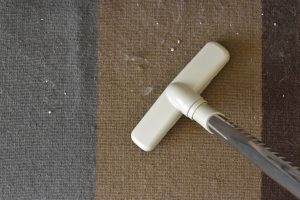Eating cat litter is a weird behavior but a fairly common one in cats. Owners often find themselves wondering, what has brought upon the cat's new fascination with eating litter? After some research, we've gathered up a few potential reasons behind the behavior and ways to stop it.
Several causes could be behind a cat resorting to eating cat litter. But most litter eating habits start from the following triggers and are solved by these solutions:
Triggers:
- Anemia
- Not getting enough nutrition
- Stress
- Curiosity
- Kidney disease
Solutions:
- Regular vet visits
- Switching to non-clumping litter
- Call your cat away from the litter box
- Changing their diet
- Offering them new chew toys or catnip
- Playing with your cat more
But of course, listing out them out is a bit vague. The following sections will dive deeper into each trigger and solution to ensure you have a complete handle of the situation. We'll do our best to end your cat's gross behavior.
![A cat covering his poop with cat litter, Why Do Some Cats Eat Litter? [And How To Stop It]](https://litter-boxes.com/wp-content/uploads/2021/06/Why-Do-Some-Cats-Eat-Litter-And-How-To-Stop-It-683x1024.png)
Why Do Some Cats Eat Litter?
If a cat eats their litter, an owner must figure out why. So let's take an in-depth look at the common triggers to see whether one could be causing your kitty's new habit.
Anemia
One of the more frightening possibilities is a cat being sick from anemia. It's an illness that occurs when your cat's hemoglobin or red blood cells are much lower than usual.
Cat owners should check their feline's gums and see whether they're pale, white, or have a bluish tint. It's the easiest symptom to notice when concerned about a cat having anemia.
If they're discolored, it's likely your cat has become deficient in fatty acid, vitamins, iron, or track minerals. Each of these is crucial to their daily life functions.
Litter eating can indicate a cat suffering from feline leukemia, which also results in anemia. However, it's a much more severe disease and needs immediate addressing.
If you're concerned about a possible anemia issue, please consult a vet immediately. It's not something that owners should ever mess around with, as it can be a huge burden on your cat.
Not Getting Enough Nutrition
Another common trigger is a daily diet without enough nutrition. As a result, your cat might be lacking in some combination of these crucial vitamins and minerals:
- Vitamin A
- Taurine
- Pyruvate kinase
- Vitamin B1 (thiamine)
- Sodium
Eating cat litter represents an attempt to obtain nutrition. Some litters contain minerals, such as clay-based ones, and seem like an easy way to get them for your kitty.
Cat owners who suspect it's a dietary issue should schedule an appointment with their vet. They will provide guidelines and recommendations about what changes will improve your cat's diet. Plus, they can offer some supplements to help boost their nutrition intake.
Stress
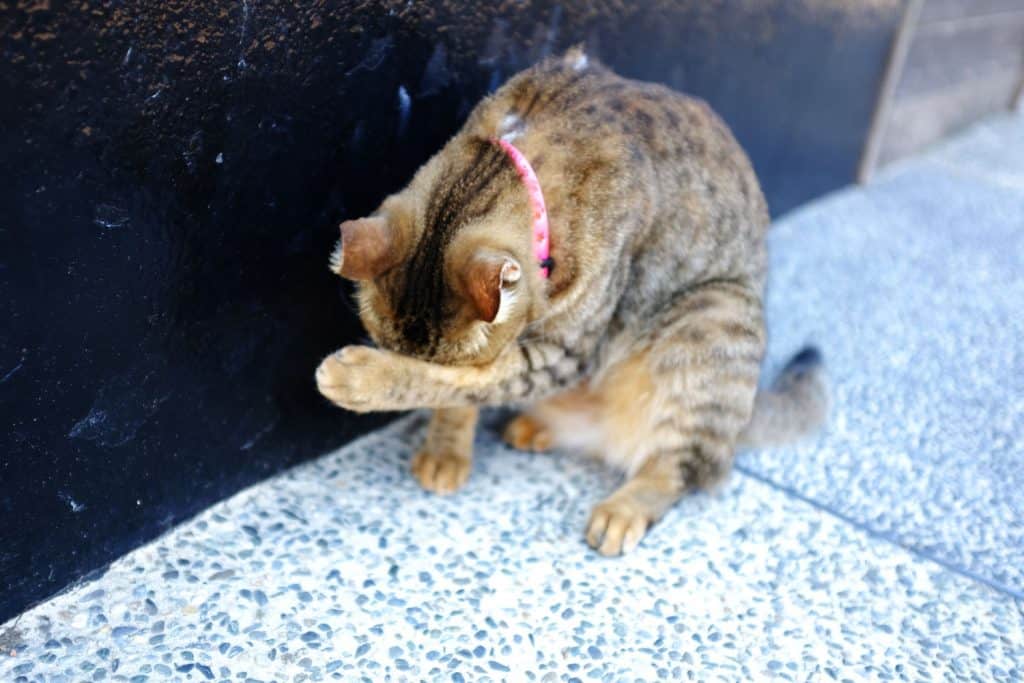
A stressed-out cat isn't much different than a stressed human being. Both can develop and start doing strange behaviors due to heightened stress levels.
One standard outlet for a cat's stress is eating cat litter. If you notice this behavior becoming a habit, evaluate whether you've made significant changes to their routine or household.
Cats are notorious for hating change and rebel against even the slightest changes. Reverting to the old schedule could be a simple method of getting the behavior to stop.
Curiosity
Thankfully, not every cat who eats litter has a scary issue like anemia or stress. Some cats will let their curiosity get the best of them and try a few litter grains or pellets.
Curiosity tends to be a more common cause in kittens because they don't know any better. So they're looking to explore and learn their surroundings through their senses. But, unfortunately, this unabashed need for exploration can lead to some bad decisions.
A kitten's curiosity might be a result of being removed from their mother too soon, as well. These kittens don't get schooled about by the mother about how to do certain things correctly.
One of these valuable lessons could be about proper litter box usage. In other words, they don't learn about how the litter's used to bury the waste and isn't something to eat.
You'll end up having to pick up the slack and train them yourself. Please find a way to teach them about proper litter box usage, so they can tell what's food and what isn't.
It's also worth noting cats do retain their curiosity as they get older, though they're smarter with their decisions. But it doesn't mean that older cats are immune to the temptation of eating litter.
The behavior is often triggered by change within the type of litter used inside their box. For example, an owner who changes to a biodegradable one made from edible sources could find their older cat munching on it.
Kidney Disease
As a cat gets older, its kidneys and other organs can become increasingly less effective. It makes the kidneys have to work much harder to provide their vital function.
This increased workload makes them prone to having kidney disease. Some notable symptoms include weight loss, vomiting, weakness, depression, and litter eating. If you've noticed these symptoms, schedule a vet visit immediately.
Your vet will do a urinalysis to determine the cat's urine concentration. If they notice it's too dilute, kidney disease could be the root of their litter eating problems.
How to Stop Cats from Eating Litter?
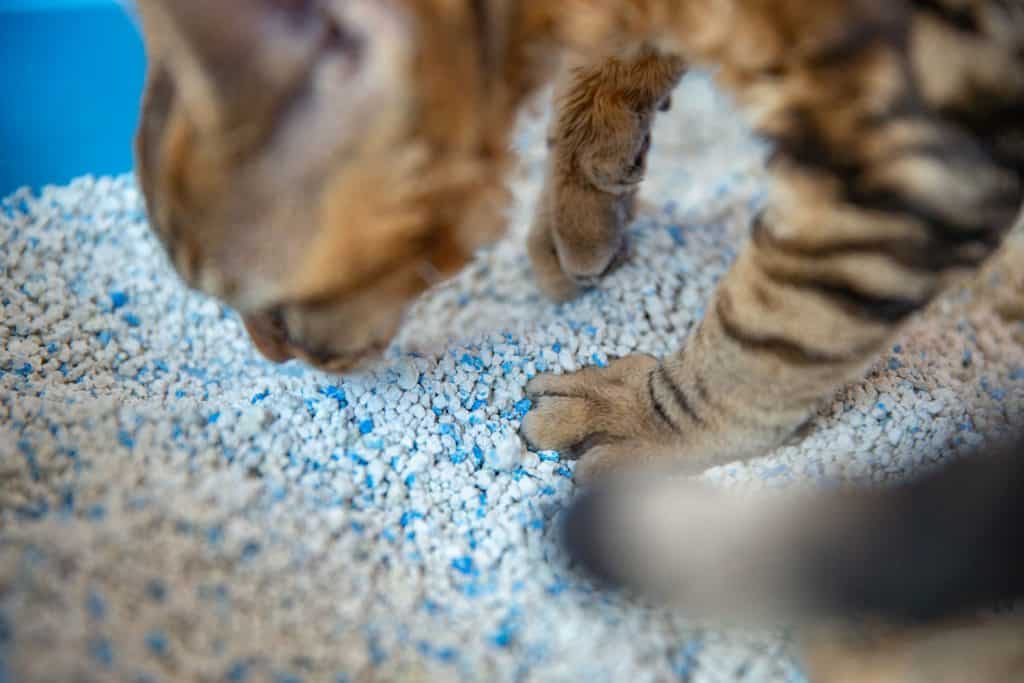
Since you've now got a handle on the causes, it's time to discuss potential solutions. These methods will hopefully ensure that your cat stops this unappealing behavior.
Regular Vet Visits
Regular vet visits are a crucial component of keeping any cat healthy. They'll provide access to a professional familiar with your cat's history and capable of advising necessary steps to take.
If your cat has been chewing litter for a while, it's time to revert from the regular schedule. Take them to your vet immediately for a checkup.
The vet will check them for various conditions and any intestinal/digestive track issues. Contacting a vet remains the easiest and safest way of correcting any behavior or health problem.
Can Litter Make Cats Sick?
Cat litter isn't meant to make your cat sick, but some commercial ones might cause health issues. Some clumping bentonite or crystal litter options might even be life-threatening for particular cats.
Additionally, litter with too much dust can cause cats to suffer from respiratory issues. A good rule of thumb is making sure the litter's safe and your cat refrains from ingesting it.
What Happens If A Cat Eats Clumping Cat Litter?
Most clumping litters contain sodium bentonite, which is severely dangerous for cats to ingest. Sodium bentonite can clump within a cat's intestines and cause a blockage.
In some cases, ingesting sodium bentonite can lead to bentonite toxicosis. It's not a condition any cat owner wants their favorite feline to endure.
Switching to Non-clumping Litter
You can avoid issues like bentonite toxicosis by using safe, non-clumping litter. In the simplest terms, it's a preventive action to keep your cat safe if the habit starts again.
If you're looking to take it a step further, choose a kitten-safe and biodegradable cat litter. Don't get stuck on the word "kitten," as these litters are worth using for adult felines.
What Is The Safest Litter For Cats?
Kitten-safe and biodegradable cat litters are the safest bet when choosing these products. They're natural and designed to work with the curious kittens who are more prone to litter eating.
Call Your Cat Away From the Litter Box
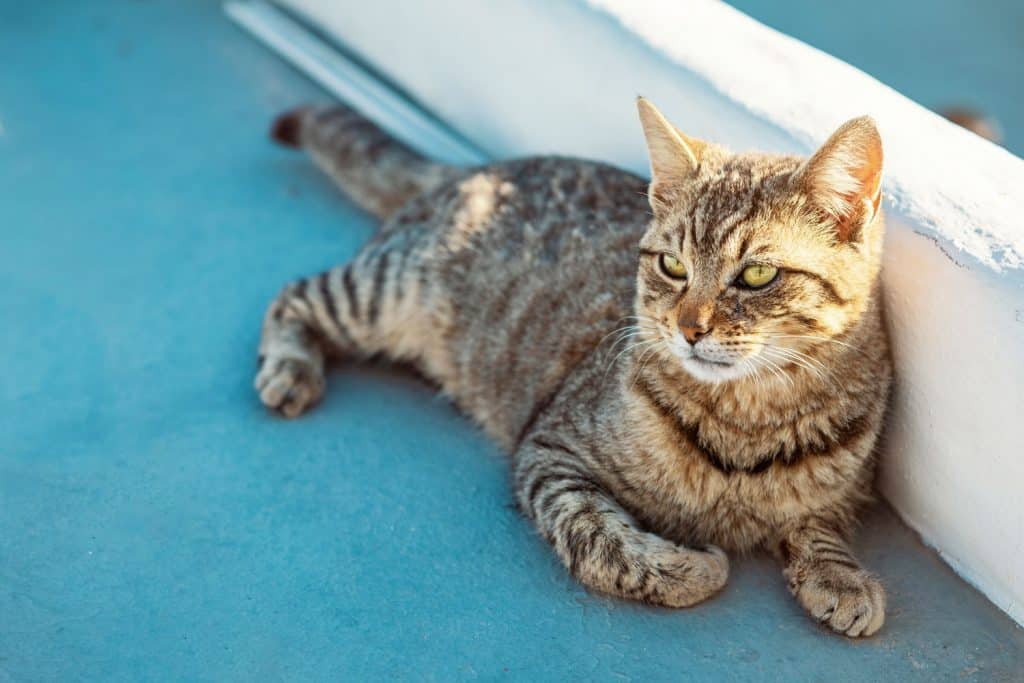
If your cat's hanging out in their litter box or eating litter inside it, remove them from it. You should then monitor their next bathroom visit, call them away after they finish, and provide a treat.
It'll get them used to the process of going into their box, using it, and leaving when done. The treats and praise will be an extra incentive to make it normal, learned behavior.
Switch Your Cat's Diet
Changing the cat's food based on your vet's recommendations can do wonders when curbing litter eating habits. It'll help provide them with the right amount of nutrition.
As a result, your cat won't need to search elsewhere for those vitamins and minerals. It's also essential to keep the amount of food consistent and make fresh water readily available.
Offer New Chewing Toys or Catnip
If you've got a curious kitty on your hands, offer them a few new chewing toys. It'll help divert their attention away from the litter and provide a new source of curiosity.
Catnip is another excellent attention grabber for a curious kitty. Plus, it doesn't cost much money and available in various forms like sprays, dried flakes, or even toys.
Play More With Your Cat
Boredom can be a powerful motivator in cats doing strange behaviors like litter eating. It could be their attempt at gaining your attention and stating displeasure in them being ignored.
We recommend taking some time to play with your cat each day. It should help control their boredom and prevent these strange habits from developing.
If you don't have the time, adding another cat into your home could cure their boredom. There's nothing better than a nearby friend or enemy to keep a cat entertained.
In Closing
If you have any more questions about your cat's litter eating, please let us know in our comment section. We'll make sure to answer each post as soon as possible. Thanks for reading!

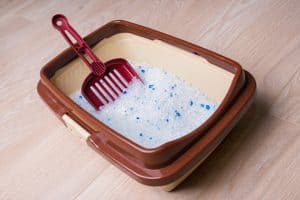
![cat examines kitty litter box with eco-friendly silicate litter - Can You Wash and Reuse Crystal Cat Litter? [Answered]](https://litter-boxes.com/wp-content/uploads/2023/08/cat-examines-kitty-litter-box-with-eco-friendly-silicate-litter-300x200.jpg)
